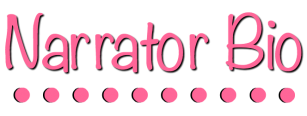

Author: Jason Dias
Narrator: Jennifer Jill Araya
Length: 7 hours and 54 minutes
Publisher: Jason Dias
Released: Feb. 11, 2019
Genre: Science Fiction; Post-Apocalyptic

When the last man on Earth reveals he has a nuclear weapon pointed at the tiny Martian colony, the colonists can only survive by working together. Jaye, a Trueborn Child of Mars, isn’t like her father, Merlin. Like all the Trueborn, she is cursed with perfect memory and deep sensitivity. But not even the knowledge that Merlin killed her mother can change the fact: They need each other for more than survival.


Jason Dias is a neurodivergent existential psychologist and author. He lives, loves and works in Colorado Springs, Colorado and keeps largely to himself.
Website⎮Twitter⎮Amazon

Jennifer Jill Araya has been listening to audiobooks since she was a young child, and the fact that she now gets to narrate audiobooks for a living is a dream come true. Jennifer’s training as an opera singer and orchestral cellist lend a musicality and depth of understanding to her narration that help bring her authors’ stories to life. She loves nothing more than giving life and breath to the printed word.
When she’s not narrating, Jennifer can be found hiking, biking, running, or generally exploring her home city of Cincinnati with her husband Arturo (aka "Partner in Crime") and their two children.
Website⎮Twitter⎮Facebook

Q&A with Jason Dias, Author of Finding Life On Mars
- Tell us about the process of turning your book into an audiobook.
- The technical side was easy. I put it up for audition and waited. Jill made an offer, I accepted, and the rest is history.The emotional side was a bit more tumultuous. This story is very personal to me. I cried the whole time I wrote it, the whole time I edited it, and every moment I listen to it. Farming out the work of narration to a stranger was a stretch for me. But I’m glad that I did.It was scary getting the first samples back. What if it’s bad? But it wasn’t bad - it was great. Then again, getting the completed novel back. I worried, but the worries were groundless. Jill is not only totally professional, but also extremely talented.So, now I have one more way to cry over this story: I can listen to Jill’s audio version.
- Was a possible audiobook recording something you were conscious of while writing?
- It hadn’t occurred to me. I knew vaguely that audiobooks existed. My family listen to them, usually while driving. If I had written with audio in mind, I might have included more dialogue tags. But Jill’s narration and characterizations are good enough you won’t notice.
- How closely did you work with your narrator before and during the recording process? Did you give them any pronunciation tips or special insight into the characters?
- Jill makes a list of weird names at the start of the process so she can get the pronunciations exactly right. This work contains a fair number of scientific words and usages, and she did a remarkable job with it.
- Were there any real life inspirations behind your writing?
- I’m autistic, and an existential psychologist. Sometimes I have emotions or just notions that I can’t tell you about simply. A sentence or two don’t cut it. That feeling you’re left with at the end of the novel… I worked two years and wrote 150,000 words to communicate that feeling to you.
- I wanted, too, for people to grasp some of the experience of being autistic. Autism covers a lot of ground; we’re people, and each of our experiences is correspondingly different. I’m in the broad camp that feels things more deeply than average - the empathetic camp.Then, there’s the existential philosophy. Unlike feelings, the philosophy is easily stated: Live while you’re alive. But the statement, easily made and simply accepted, doesn’t convey any of the importance of the underlying truth. I hope this story does that work.
- How do you manage to avoid burn-out? What do you do to maintain your enthusiasm for writing?
- A psychotherapy client a long time ago gave me some simple advice: Write when it’s time to write. It works for me. When I don’t want to, I don’t force it. When I want to, the words come naturally.
- Is there a particular part of this story that you feel is more resonating in the audiobook performance than in the book format?
- There is this little scene where Merlin talks to a vacuum tube. He’s breaking it down for parts, repeating to it elements of an argument Jaye had made to him about the extinction of humanity. I’d meant it to be mostly about Merlin, his character. Ruminating, holding back his grief and indignation from his daughter, expressing it later harmlessly. Jaye overhears him and, in the novel just reports it to the reader.But in the audiobook, she’s really astounded by Merlin’s performance, almost outraged by the weirdness of a grown man talking to a piece of trash.Jennifer Araya clearly identified that the novel isn’t about Merlin; it’s about Jaye. And this scene plays much differently - and better - from that perspective.
- If you had the power to time travel, would you use it? If yes, when and where would you go?
- I DO have the power to time travel. Every day, I slip 24 hours into the future. For better or worse, it’s a one-way ticket.
- If this title were being made into a TV series or movie, who would you cast to play the primary roles?
- I think Gary Sinise could pull off the Merlin character. He could manage the switch between technical language and emphatic, emotional discourse. We find out later in the story that on Earth, Merlin was a very dangerous man - Sinise could also bring that sense of latent menace.The world is crawling with up and coming actors in the 21 age range. I’m tagging Rowan Blanchard, though, as having the right look. I could see her taking on the muddy, faraway gaze.And I could see Jada Pinkett as Selene, dreaming of her wall of paints, crying over the memory of a bear in the city. It would be easy to take Selene over the top and I think Pinkett would bring a sensitivity to the role that would keep her grounded and believable.
- How did you celebrate after finishing this novel?
- Writing is mostly thinking. By the time I was wrapping up the final words, I’d thought them through weeks before. What tends to happen to me at the end of a novel is the next novel intrudes; all I can think of is this crazy new world that wants to be built.In all honesty, I celebrated finishing Finding Life on Mars by opening a new document and typing out the title, “The Worst of Us.”
- In your opinion, what are the pros and cons of writing a stand-alone novel vs. writing a series?
- A series doesn’t have to do much world-building. The world is built, we know the main characters, and we can focus on the drama.I think that could be upside or downside, depending what you like to do with your time. I for one love worldbuilding. I like to read it and I like to write it. My favorite struggle is to inform the reader about the universe they now inhabit without devolving into a ton of explication.Really masterful writers can manage this. I succeed at varying levels depending on the day and the world in question.
- What bits of advice would you give to aspiring authors?
- Write.Do it your way. Do what you want.There are over ten million books listed on Amazon.com. Nobody needs another story just like all the other stories, but folks are going to tell you to conform in a thousand little ways. You don’t need to fit in; you need to stand out. So write what you want to, how you want to.
- What’s next for you?
- I’m wrapping up a zombie novel. The central premise, the world-building premise, is that there are no good scientific explanations for zombies. Suspending disbelief, for me, requires accepting a supernatural premise. So I went with that.But in my work, there’s always manifest and latent content. That is, what it’s about on the surface, and what it’s really about.The main character is a black trans woman who has the power to awaken a small number of zombies back to life. Doing so is a difficult moral choice, because awake, they must face up to what they did as monsters, and also an indefinite future in a world of similar monsters. This character also sits with the way others have treated her - zombies aren’t the first monsters she’s ever encountered.That project might be a year out. It’s the longest single-point-of-view narrative I ever constructed, and it’s going to take a lot of editing passes to drive up the tensions early in the story. But I hope the end result is worthwhile.


Q&A with Jennifer Jill Araya, Narrator of Finding Life On Mars
- How did you wind up narrating audiobooks? Was it always your goal or was it something you stumbled into by chance?
- I have been an avid audiobook listener since I was a child. My mom tells stories of me being obsessed with the audio versions of my favorite children’s books when I was just a toddler, which I don’t remember, but I do remember listening to audiobooks in the car on our family road trips from the time I was in late elementary school. My family traveled a lot, so I did a lot of listening, and I loved it! I’ve always been a bookworm, avidly consuming literature in every format, and so I’ve always listened to audiobooks just as much as I’ve read print books.I’ve also always been involved in theater and music, even as a very young child, and to my elementary-aged self, narrating a book like those I listened to seemed like the acting version of the coolest jobs ever, up there with being an astronaut or serving as President. But also just like astronauts and Presidents, audiobook narrators seemed to me to be a world apart, that audiobook narration was a job no real person could actually get. I didn’t know anyone who was an audiobook narrator or wanted to be an audiobook narrator. The career path was totally foreign to me. By contrast, I did know musicians and actors, and so I pursued that career and went to conservatory to study cello and voice (aka orchestra and opera).While in college, I did a lot of corporate voiceover, a fairly common side-job for voice majors, but even then I didn’t see any way into audiobook narration. All the literature I could find talked only about general voiceover, not audiobook narration, and even that didn’t seem to be a viable career path at the time. So, I pursued other goals: I won cello positions with School House Symphony, an educational chamber orchestra, and with the Springfield Symphony, and I performed frequently in musicals and operas.Fast forward to January 2018, and I decided I wanted to look for a summer job. All my performance jobs were primarily school-year positions, and I wanted something to do over the summer that was still flexible enough that I could chauffeur my kids to their summer activities. On a whim, I googled “audiobook narration,” and I found information about ACX. All of a sudden, my childhood dream of narrating audiobooks was a possibility, right in front of me. I purchased the recording equipment I didn’t already have from my work as a musician, and I started submitting auditions. I got coaching to learn the specifics of acting for audiobook narration as opposed to acting for the stage, and I attended audiobook conferences and workshops. I’m now living my dream of working full-time as an audiobook narrator, and I couldn’t be happier!
- A lot of narrators seem to have a background in theatre. Is that something you think is essential to a successful narration career?
- ABSOLUTELY. I can’t stress this strongly enough! Audiobook narration is the most challenging (and in my opinion, most rewarding!) form of acting that exists. It is arguably more complicated than the acting required of someone on stage, in that audiobook narrators must act every single character in the book all at once, switching seamlessly back and forth between the various characters in dialogue scenes with no pauses or hesitation. This is even true in nonfiction books, when the narrator must act the role of the knowledgeable author of the book, who wants to share information with the audience.When acting onstage or for a movie, actors have a director telling them where to stand and how to say their lines. Other actors are on set or on stage, and the communal energy activates and informs the individual performances of every actor involved. By contrast, in audiobook narration, unless you are working on an A-list title with a big budget, there is no director, no engineer, no co-stars. You’re in your home studio all by yourself talking alone into the microphone. Narrators must find a way to speak directly to an audience and engage the listener without that audience or listener being present in any way. When I’m recording a book, I have to find a way to be just as engaged and focused in the story as I would be if I were on stage with an audience of 1,000 hanging on to my every word. This is not an easy task to accomplish, and an acting background is the only thing that makes it possible.In short, yes, an acting background is essential to success as an audiobook narrator. That doesn’t mean, however, that someone who has never acted before can’t become an audiobook narrator. It does mean that they need to take acting classes and get some acting experience before embarking on their narration journey.
- How do you manage to avoid burn-out? What do you do to maintain your enthusiasm for narrating?
- My biggest strategy for avoiding burnout is to actively pursue variety in my books. I narrate everything from sci-fi/fantasy to romance to business nonfiction, and everything in between! Every genre has its own unique formatting and acting challenges, and those constantly changing challenges as I move from book to book keep the job interesting andcaptivating.
- How closely do you prefer to work with authors?
- Part of what I love most about what I do is the close collaboration with authors as I give voice to their words. My aim is always to remain faithful to the words, characters, and world of the author, translating the words on the page into a living, breathing audio experience. I love trying out different voices with the author on the phone to get as close as possible to the imaginary character voices they lived with while writing the book. Narration can be a very solitary occupation – I spend hours every day alone in a booth with my mic! – and working closely with the authors helps the audiobook production endeavor to feel more collaborative. That said, every author comes to their audiobook project with a different idea of how involved(or not) they want to be, so I’m always adapting my process to fit the author’s needs. As I said earlier, every book is its own unique project, keeping me interested and excited about what I do!
- What about this title compelled you to audition as narrator, and how closely do you prefer to work with authors?
- When I first saw the audition listing for Finding Life on Mars, I was immediately captivated by the cover. I know you should “never judge books by their covers,” but of course everyone does. Jason’s cover designer did a great job with the cover for Finding Life on Mars. But a great cover isn’t enough. I was also fascinated by the premise of the story. I love reading science fiction, both in my work as a narrator and in my personal reading time. It was a given that I would audition for a science fiction novel with a fantastic cover and an intriguing book blurb. Books like Finding Life on Mars are why I love what I do!
- How did you decide how each character should sound in this title?
- Jason Dias gave me a lot of information in the text itself about how he envisioned his character’s voices. Several of the “human” characters (referring to the characters who were born on Earth) have distinctive accents, which of course influences not just their pronunciation but also alters their pacing and rhythm of speech. The “Trueborn,” the children who were born on Mars, have a unique neurological perspective that very much impacts their speech patterns. In our discussions about the book, Jason described these characters as being similar to people on the Autism spectrum, so I watched a lot of YouTube videos of people on the spectrum talking about their own speech patterns. Jason also mentioned that he envisioned their voices asresembling the voices of Data and Lal from Star Trek: The Next Generation, so I watched lots of videos of Data and Lal to get their voices in my ear while preparing to narrate this book. I’m a huge TNG fan, so I loved it!
- What do you say to those who view listening to audiobooks as “cheating” or as inferior to “real reading?”
- Absolutely not! This is something I’ve frequently heard since embarking on my audiobook narration journey, and nothing could be further from the truth. Whether I am using my eyes to interpret letters printed on a page, or using my ears to interpret sounds spoken into my earbuds,I am still internalizing and understanding the author’s intent. I have always been a bookworm, and I’ve personally never distinguished between reading a print book or listening to an audiobook; they are both reading!As audiobooks have been gaining in market popularity, lots of psychologists and psychiatrists have been weighing in on this issue over the past few years. Every single study result that I’ve read has found that audiobooks and print books have the same psychological effect. This article, written by University of Virginia psychologist Daniel Willingham, is one of my favorite rebukes to the “audiobooks are cheating” concept: http://www.danielwillingham.com/daniel-willingham-science-and-education-blog/is-listening-to-an-audio-book-cheating. I love the closing statement of his article: “Comparing audio books to cheating is like meeting a friend at Disneyland and saying ‘You took a bus here? I drove myself, you big cheater.’ The point is getting to and enjoying the destination. The point is not how you traveled.” I couldn’t agree more!
- What bits of advice would you give to aspiring audiobook narrators?
- The two most important things new narrators must do are (1) listen to audiobooks and (2) work with an audiobook-specific coach. If you are not listening to audiobooks, you cannot fully understand the art you are aiming to create. I listen to audiobooks like it’s my job, because it is. And I have worked with two audiobook coaches so far and have sessions and workshops scheduled with several more during 2019. The process of learning from other narrators (by listening) and learning from industry veterans (by coaching) is never-ending during an audiobook narration career. These two steps are also the best place to start such a career.
- What types of things are harmful to your voice?
- Because voice performance, musical theater, and opera have been my career for decades, I’m used to being incredibly careful with my voice. And because my voice is a part of my body, I have to be incredibly vigilant with my overall health. Any physical stress or illness changes the tone and flexibility of my vocal cords, so I’m always paying attention to my health. I try to get enough sleep, although that doesn’t always happen with kids! I drink lots of herbal teas, do nasal rinses daily, and take lots of vitamins to support my immune system and nasal health. I drink way more water than seems possible, and I never yell or scream at sports events. When I attend my kids’ games, I take a small cowbell so that I can still cheer and make noise without messing up my voice. My friends and family are used to my periods of vocal rest, when I need to rest my voice and communicate by writing on a notepad rather than speaking. Luckily, I am generally pretty healthy and able to avoid colds and such.
- What’s next for you?
- My schedule over the next few months is full and exciting, exactly the way I like it! I have several books scheduled with authors I’ve already worked with before: sequels to a few past books, as well as new series starting for a few other authors. I love building long-term relationships with authors. As I work with an author over several books, I am able to get a deeper sense of their rhythm and style that enhances the quality of the finished product. It’s a type of familiarity that is only possible after spending literally hundreds of hours working with an author’s books, and I love it! I also have books on tap from several of the audiobook publishing houses – Brilliance, Tantor, and Spectrum. These books are in all different genres. I am in no danger of getting bored with my work!
Prize: $50 Amazon Gift Card

Mar. 31st:
Apr. 1st:
Apr. 2nd:
Apr. 3rd:
Apr. 4th:
Apr. 5th:
Apr. 6th:

➜Sign up as a host here





Sounds interesting. Enjoyed reading the interviews.
ReplyDeleteI loved Jason's answer to the time travel question! Never thought of it like that.
ReplyDeleteYour book sounds like a great read and thank you for sharing it with us.
ReplyDeleteI've run out blogs to comment on so here I am again - hope this counts Teresa!
ReplyDeleteThank you for the author and narrator interviews. I have enjoyed reading about you and your work.
ReplyDelete